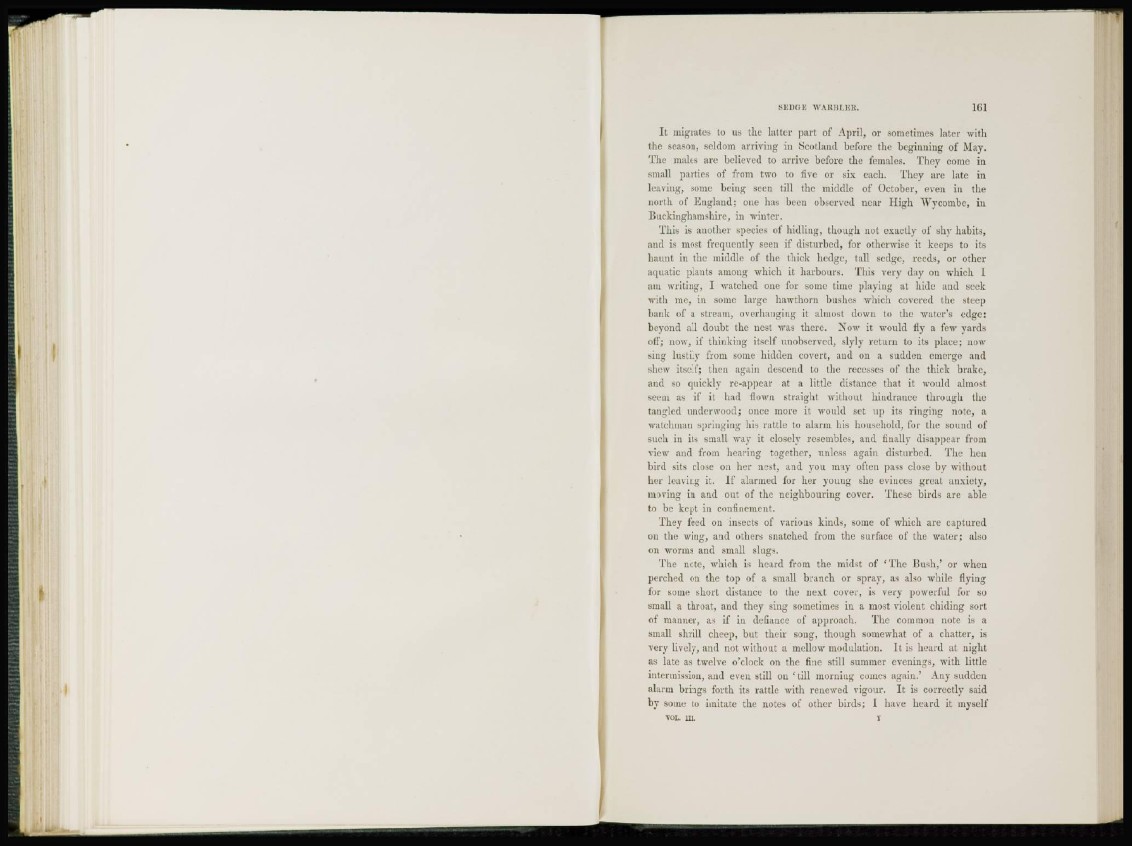
I t migrates to us the latter part of April, or sometimes later with
the season, seldom arriving in Scotland before the beginning of May.
The males are believed to arrive before the females. They come in
small parties of from two to live or six each. They are late in
leaving, some being seen till the middle of October, even in the
north of England; one has been observed near High Wycombe, in
Buckinghamshire, in winter.
This is another species of hidling, though not exactly of shy habits,
and is most frequently seen if disturbed, for otherwise it keeps to its
haunt in the middle of the thick hedge, tall sedge, reeds, or other
aquatic plants among which it harbours. This very day on which I
am writing, I watched one for some time playing at hide and seek
with me, in some large hawthorn bushes which covered the steep
bank of a stream, overhanging it almost down to the water's edge:
beyond all doubt the nest was there. Now it would fly a few yards
off; now, if thinking itself unobserved, slyly return to its place; now
sing lustily from some hidden covert, and on a sudden emerge and
shew itself; then again descend to the recesses of the thick brake,
and so quickly re-appear at a little distance that it would almost
seem as if it had flown straight without hindrance through the
tangled underwood; once more it would set up its ringing note, a
watchman springing his rattle to alarm his household, for the sound of
such in its small way it closely resembles, and finally disappear from
view and from hearing together, unless again disturbed. The hen
bird sits close on her nest, and you may often pass close by without
her leaving it. If alarmed for her young she evinces great anxiety,
moving in and out of the neighbouring cover. These birds are able
to be kept in confinement.
They feed on insects of various kinds, some of which are captured
on the wing, and others snatched from the surface of the water; also
on worms and small slugs.
The note, which is heard from the midst of ' T h e Bush,' or when
perched on the top of a small branch or spray, as also while flying
for some short distance to the next cover, is very powerful for so
small a throat, and they sing sometimes in a most violent chiding sort
of manner, as if in defiance of approach. The common note is a
small shrill cheep, but their song, though somewhat of a chatter, is
very lively, and not without a mellow modulation. It is heard at night
as late as twelve o'clock on the fine still summer evenings, with little
intermission, and even still on 'till morning comes again.' Any sudden
alarm brings forth its rattle with renewed vigour. It is correctly said
by some to imitate the notes of other birds; I have heard it myself
VOL. HI. Y